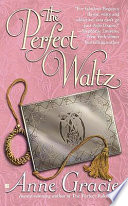Moniker/Name Gloria
Source of Question Research
Your Question What is the correct title for a widowed Duchess who marries an Earl?
Additional comments Nothing seems to mention her title. I think she can retain her title as Duchess although now married to an Earl. Is that correct?
Thanks for the question, Gloria, and for being a Regency Reader!
From the link you included (http://laura.chinet.com/html/titles09.html) you already know that a widowed Duchess would become the Dowager Duchess of x, unless there already is a Dowager in which case she becomes known by her first name, Duchess of x.
While in modern life, a female peer who remarried will often assume the new married name, it was not uncommon in the Regency or in previous eras for a widowed peer to maintain their higher title. An example of this was Henry VIII’s last wife, Catherine Parr, who styled herself Queen Catherine even after her marriage to Baron Seymour. However, this was more courtesy than a true relation to her endowments:
Debrett’s Peerage, Baronetage, Knightage, and Companionage (1884)
In fact, it wasn’t always the case that the woman would keep the higher title. Princess Victoria of Saxe-Coburg-Saalfeld would later be Princess of Leiningen and then Duchess of Kent and Strathearn.
So the Duchess in question could retain, as a courtesy, her title upon remarriage but it would only be as a courtesy and not as a claim to the Duchy, which would either be inherited by her issue with the Duke or by the next in line.
Ask us more questions about the Regency in our Regency ? page. We are also trialing a new service, Research Requests, for writers or others wanting a more in-depth answer with sources, or looking for a Beta read with an eye to historical details.
Appreciate our research? Please share with other readers, leave your comments, buy a book through one of our links on reviews, or buy us a cup of tea!










